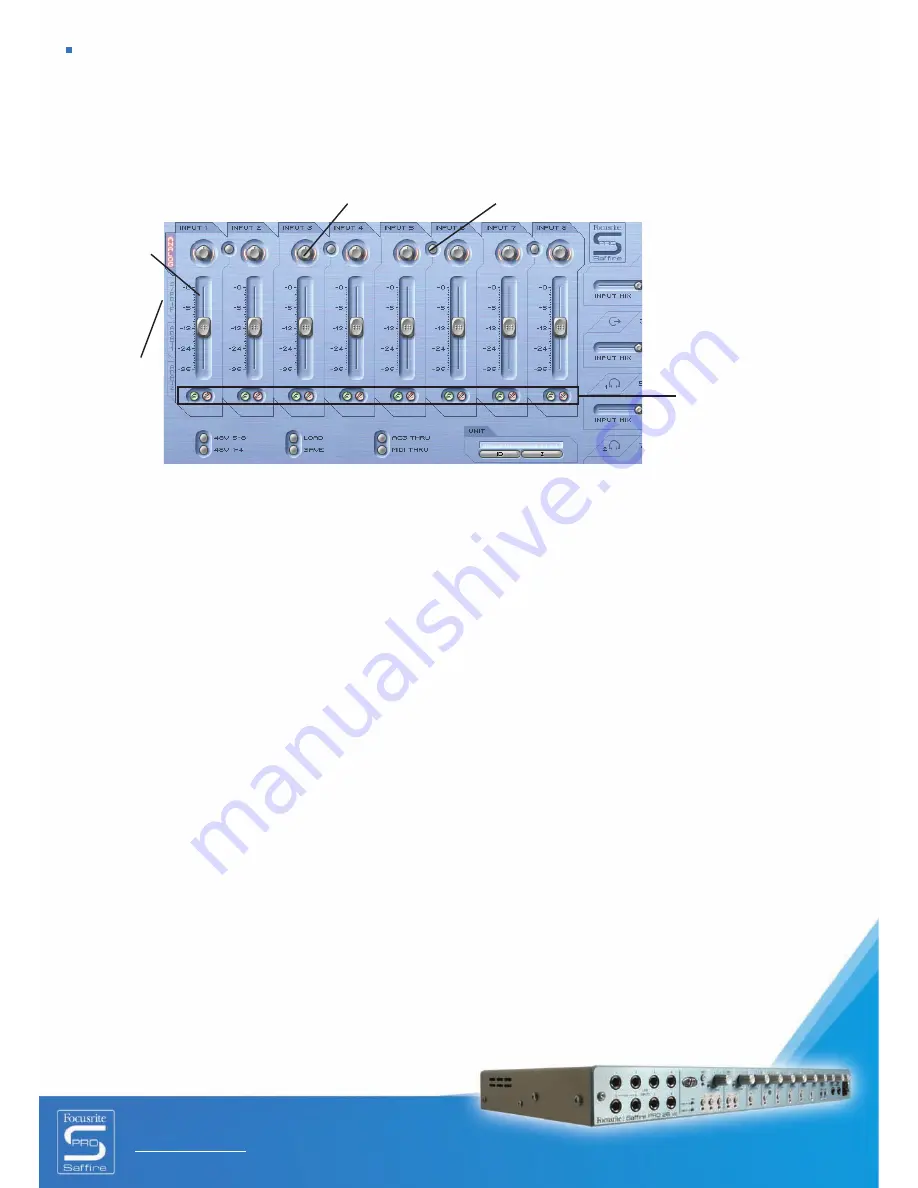
Saffire PRO 26 i/o
User Guide
12
Creating an Input Mix
On the left hand side of the software window are faders and switches that allow an Input Mix to be created for Monitoring purposes.
This Mix will appear on the left side of the crossfader for each pair of analogue outputs (on the right hand side of the software
window). If you wish to set up this mix using Monitors connected to Outputs 1 and 2, simply set the crossfader for this pair of
outputs over to the left so that just the Inputs are heard. Note that at higher sample rates, input mixing may be disabled, see page 21.
Input levels are adjusted as follows:
1. Input mix group fader select switches – choose the signals to be controlled by the eight faders alongside
(An S/PDIF or ADAT1 or ADAT2 Input(s)) for creating an Input Mix
2. Input level control fader – this sets the level of each input.
3. Input panning dial – this pans the input from left to right within the stereo field.
4. Stereo link button – this links the levels of the inputs either side of the switch and auto-pans them hard left and right.
5. Solo and Mute switches – these solo and mute Inputs 1-8
The Input ‘mix group’ fader select switches choose which signal group (of all the inputs) is controlled by the eight Input Mix faders.
For example, if you wish to increase the levels of the S/PDIF Input, click the S/PDIF switch. This activates the S/PDIF Input across
the faders; as there are only two channels, only the first two faders are active with the rest greyed out. Now use the two active
faders to set levels, using the stereo link switch if a left/right pair is in use. Note that the S/PDIF Input must be enabled using the
switch in the SYNC section below for Input Mix levels to be set. (See the Synchronising Saffire PRO section for details, page 16.)
To then return to the default mode, where the analogue inputs are active across all eight faders, click the Analogue switch to the
left of the faders.
Output settings/Monitoring options - Continued
1. Input ‘Mix
Group’ fader
select switches
2. Input Level
Control fader
3. Input Panning Dial
4. Stereo Link Button
5. Solo and
Mute Switches
Summary of Contents for Saffire Pro 26 I/O
Page 1: ...User Guide FA0110 01 E OE ...

























